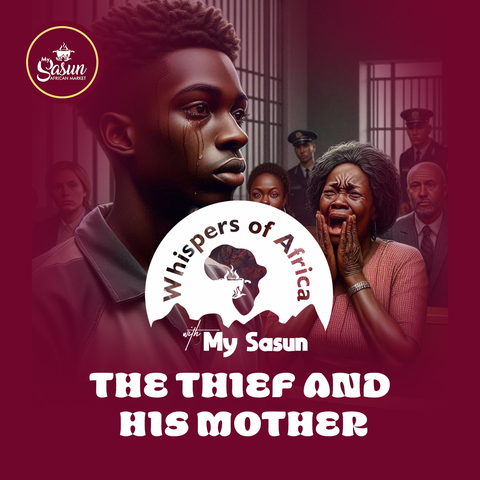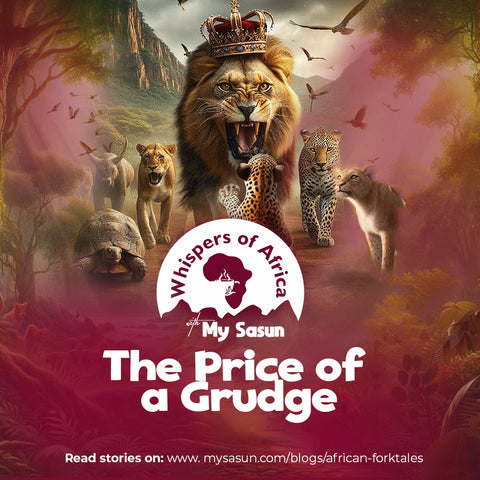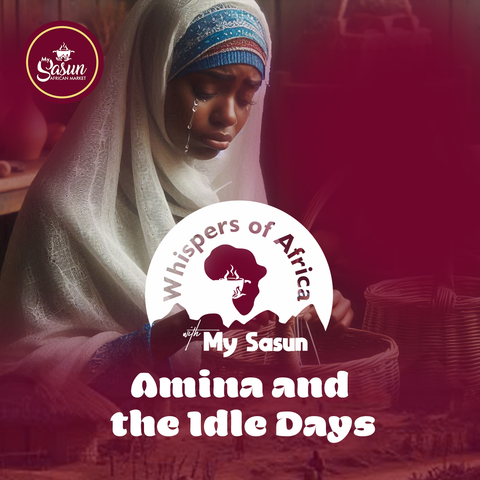Once upon a time, in a small Nigerian village in the far north, filled with fertile farmlands, there lived a woman named Hauwa. Hauwa had one son, Adamu, whom she adored more than anything else in the world. From the moment Adamu could walk, Hauwa pampered him. She shielded him from every scolding, indulged his every whim, and ignored the warnings of friends and neighbors.
“Be careful, Hauwa,” the elders would tell her. “A tree that grows crooked while young will never straighten.”
But Hauwa would laugh it off. “Adamu is my only child,” she’d say. “I cannot bear to see him unhappy.”
As Adamu grew older, his mischief grew with him. He began to fight with other children, lie to elders, and steal little things from the market. Whenever he was caught, Hauwa would scold him half-heartedly and brush the incidents aside.
“Boys will be boys,” she’d say, defending him even when her husband, Musa, tried to intervene.
Musa was heartbroken by Hauwa’s blind love. He warned her repeatedly that Adamu’s behavior would bring shame to the family. But when Hauwa refused to listen, Musa had no choice but to send her away. Hauwa left her husband’s house, seeing his actions as cruel and unjust.
In her new home, Adamu continued his ways, and Hauwa supported him blindly. She accepted the stolen goods he brought home, even as her heart faintly whispered that this wasn’t right. “He is my son,” she convinced herself. “I must stand by him.”
But the seeds of indulgence that Hauwa had sown bore bitter fruit. By the time Adamu was 19, he had become a notorious thief in the village. One fateful day, Adamu decided to rob the local bank where the villagers kept their farming savings. During his escape from the local police, in a stolen truck, he accidentally hit a heavily pregnant woman, killing her on the spot.
The villagers, who had long suffered from his crimes, were outraged. The local police caught Adamu, and he was dragged to the village court. The entire village gathered to witness his trial, their faces etched with anger and disappointment.
Adamu stood trembling before the judge, his head bowed low. He heard the curses of the villagers and the disgust in their voices. Some of his old classmates were there—men who had become hardworking farmers and respected members of the community. The sight of their success filled him with bitter regret. He wept openly, realizing how far he had fallen.
When the judge declared him guilty, Adamu asked for a final request. He wanted to speak to his mother. Hauwa, who had been wailing throughout the trial, rushed to him, tears streaming down her face.
“Come closer,” Adamu said, his voice trembling. “I want to whisper something to you.”
Hauwa leaned in, her sobs muffling the courtroom’s tense silence. Suddenly, Adamu lunged forward and bit her ear off.
Chaos erupted in the courtroom. Hauwa screamed in pain as blood poured from her ear. Adamu, breathing heavily, shouted through his tears, “You destroyed me, Mom! You ruined me! That wasn’t love you showed me, letting me do all those things. I needed a mother who would guide me, not one who condoned my wrongs. I wish you were strict and wise!”
Hauwa, clutching her bleeding ear, collapsed onto the courtroom floor. The nurses rushed to carry her away as her cries echoed in the silent hall. Musa, standing in the crowd, wept for his son and his broken family.
The judge, shaking his head, pronounced his final judgment. Adamu would face the full penalty of the law, but the shame he bore that day was punishment enough for his soul.
The villagers left the courtroom, muttering among themselves. Hauwa, now scarred and broken, spent her days in solitude, haunted by her son’s bitter words.
That was how the story of Hauwa and Adamu became a cautionary tale in the village, reminding parents to raise their children with wisdom and discipline. Love, after all, is not just indulgence but correction and guidance. Only then can a child grow straight and strong, like a tree that bends with the wind yet stands firm against the storm.
The End.







Comments (2)
I had a little blisters on my mouth and genital which I thought it was just normal , until my doctor told me it was HSV ( Herpes ) and it has no medical cure.I decided to try out natural stuff by giving a try to itua healer am so glad that I was able to cure my HSV2 ( Genital Herpes ) with his product. Contact him on WhatsApp +2348150223558 Email him on ituahealer@gmail.com and visit his website https://ituahealer.wixsite.com/my-site
My heart is so filled with joy. If you are suffering from Erectile dysfunction or any other disease you can contact Dr. Moses Buba on this buba.herbalmiraclemedicine@gmail.com or His website : https://www.facebook.com/profile.php?id=61559577240930 . For more information from me reach me via WhatsApp : +44 7375 301397